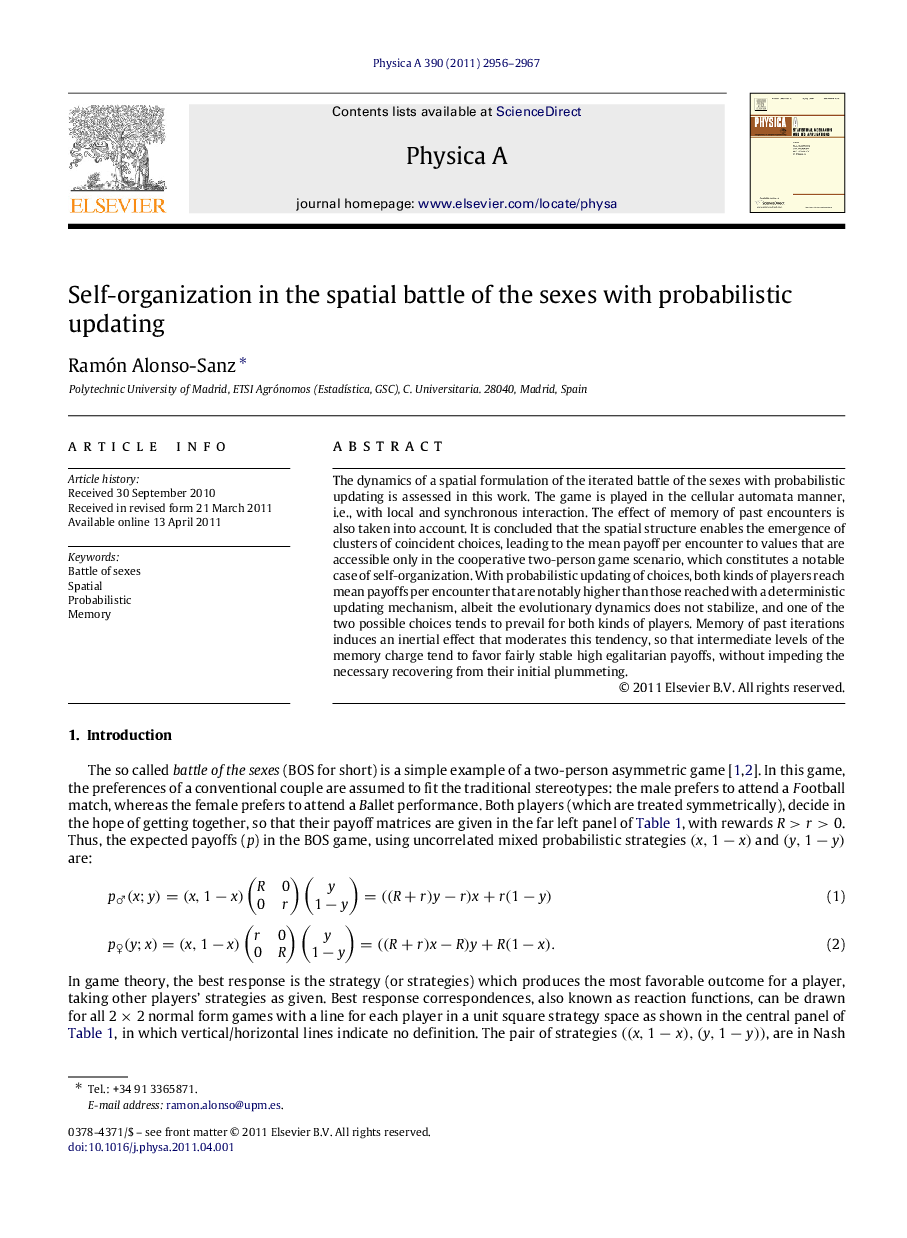| Article ID | Journal | Published Year | Pages | File Type |
|---|---|---|---|---|
| 978567 | Physica A: Statistical Mechanics and its Applications | 2011 | 12 Pages |
The dynamics of a spatial formulation of the iterated battle of the sexes with probabilistic updating is assessed in this work. The game is played in the cellular automata manner, i.e., with local and synchronous interaction. The effect of memory of past encounters is also taken into account. It is concluded that the spatial structure enables the emergence of clusters of coincident choices, leading to the mean payoff per encounter to values that are accessible only in the cooperative two-person game scenario, which constitutes a notable case of self-organization. With probabilistic updating of choices, both kinds of players reach mean payoffs per encounter that are notably higher than those reached with a deterministic updating mechanism, albeit the evolutionary dynamics does not stabilize, and one of the two possible choices tends to prevail for both kinds of players. Memory of past iterations induces an inertial effect that moderates this tendency, so that intermediate levels of the memory charge tend to favor fairly stable high egalitarian payoffs, without impeding the necessary recovering from their initial plummeting.
► The dynamics of a spatial formulation of the iterated battle of the sexes (BoS) game with probabilistic updating is assessed in this work. The game is played in the cellular automata manner, i.e., with local and synchronous interaction. ► The spatial structure enables the emergence of clusters of coincident choices, leading to the mean payoff per encounter to values that are accessible only in the cooperative two-person game scenario, which constitutes a notable case of self-organization. ► With probabilistic updating of choices both kinds of players reach mean payoffs per encounter that are notably higher than those reached with a deterministic updating mechanism, albeit the evolutionary dynamics does not stabilize, and one of the two possible choices tends to prevail for both kinds of players. ► Memory of past payoffs and choices induces an inertial effect that moderates this tendency. ► Intermediate levels of the memory charge, tend to favor fairly stable high egalitarian payoffs without impeding the necessary recovering from their initial plummeting.
